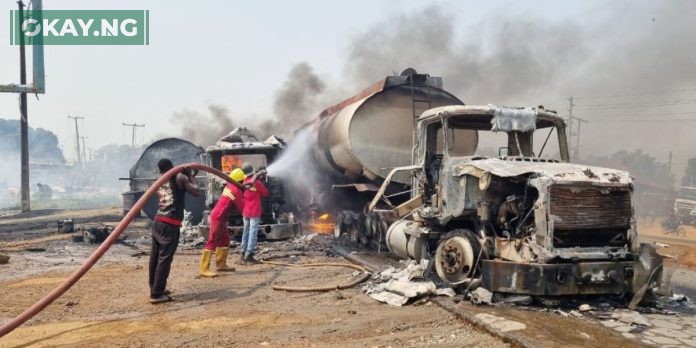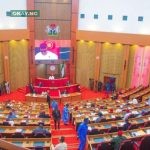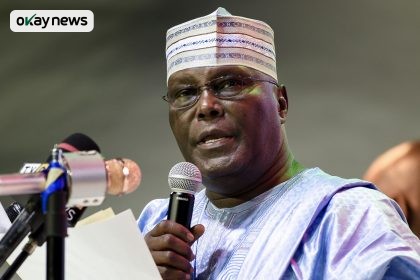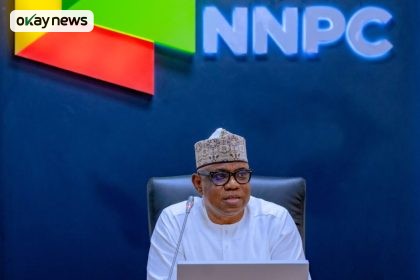In a decisive move aimed at drastically reducing the alarming rate of fuel tanker accidents, the Nigerian Midstream and Downstream Petroleum Regulatory Authority (NMDPRA) has announced a ban on large fuel tanker trucks. Effective March 1, 2025, tankers with a capacity of 60,000 litres and above will no longer be permitted to load fuel at depots nationwide. This bold initiative, as revealed by Ogbugo Ukoha, Executive Director of Distribution Systems, Storage, and Retailing Infrastructure, is a crucial step towards enhancing road safety, regulating fuel quality, and ensuring a more stable fuel supply across the country.
This decision comes against a backdrop of devastating tanker explosions that have claimed numerous lives and destroyed property. Just this January, a horrific incident in Suleja, Niger State, resulted in the loss of 102 lives, underscoring the urgent need for action. Eyewitness accounts from the Suleja tragedy paint a grim picture: a tanker carrying 60,000 litres of petrol overturned, and while a second tanker was brought in for fuel transfer, a catastrophic explosion occurred as residents attempted to scoop up the spilt fuel. According to the Federal Road Safety Corps (FRSC), from September 2024 to February 2025 alone, 265 lives were lost in various tanker explosion incidents across Nigeria. These stark statistics paint a clear picture of the human cost of these accidents.
“The first stakeholder’s technical committee met today to drill down and put timelines for about 10 resolutions that had been taken on how to drive down the significant increase that had been observed in relation to trucks and transit incidents and fatalities,” Ukoha explained. This collaborative approach, he emphasised, represents a landmark consensus among stakeholders to prioritise the safe transportation of petroleum products. “We continue to encourage that we will work together cohesively to deliver a safe transportation of petroleum products across the country,” he added.
Read Also: Nigeria Refineries: A Paradox of Plenty and Scarcity
The NMDPRA’s commitment extends beyond just tanker size. Ukoha reassured the public that the agency rigorously tests petroleum products for quality before they are distributed. “Before any product is distributed in Nigeria,” he stated, “the regulator ensures that from the load port of the product, whether from a domestic refinery or imported from outside the country, and as well as at the discharge port, accredited laboratories must test every product and duly issue certificates of quality to say that the product that is in the vessel meets those specifications.” These tests cover a range of critical parameters, including octane number, sulphur content, density, colour, and oxygenate level.
I understand the gravity of these incidents, and I believe this ban is a significant step in the right direction. It’s a move that has been carefully considered, following extensive consultations with key stakeholders, including the FRSC, Department of State Services (DSS), National Association of Road Transport Owners (NARTO), Nigeria Union of Petroleum and Natural Gas Workers (NUPENG), Standards Organisation of Nigeria (SON), and the Depot and Petroleum Products Marketers Association of Nigeria (DAPPMAN).
While the ban on large tankers is a crucial step, its long-term effectiveness will depend on rigorous enforcement and continued collaboration among all stakeholders. It’s also important to consider the potential economic implications of this decision. Will it lead to increased transportation costs? Will it impact fuel availability? These are questions that will need careful monitoring and management. However, the potential to save lives and prevent devastating accidents makes this a necessary and courageous move. The NMDPRA’s initiative offers a glimmer of hope that Nigeria can finally turn the tide on the tragic scourge of fuel tanker accidents.







